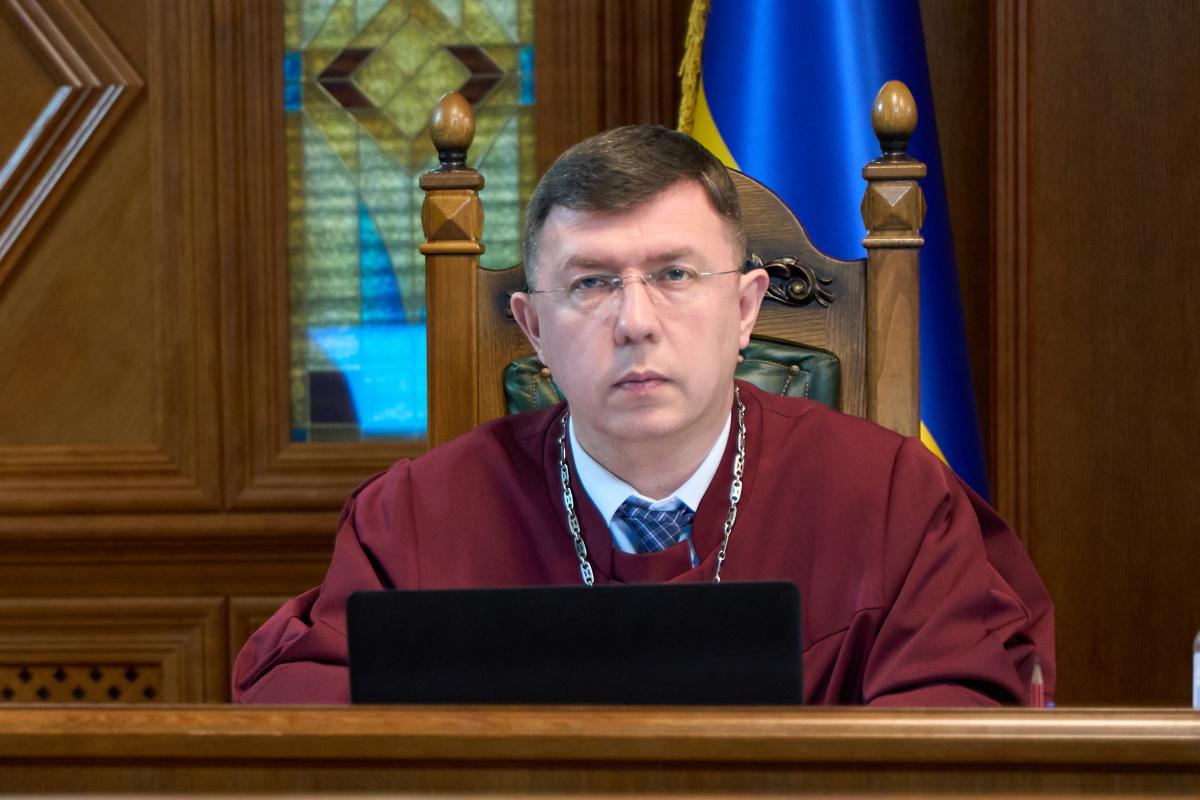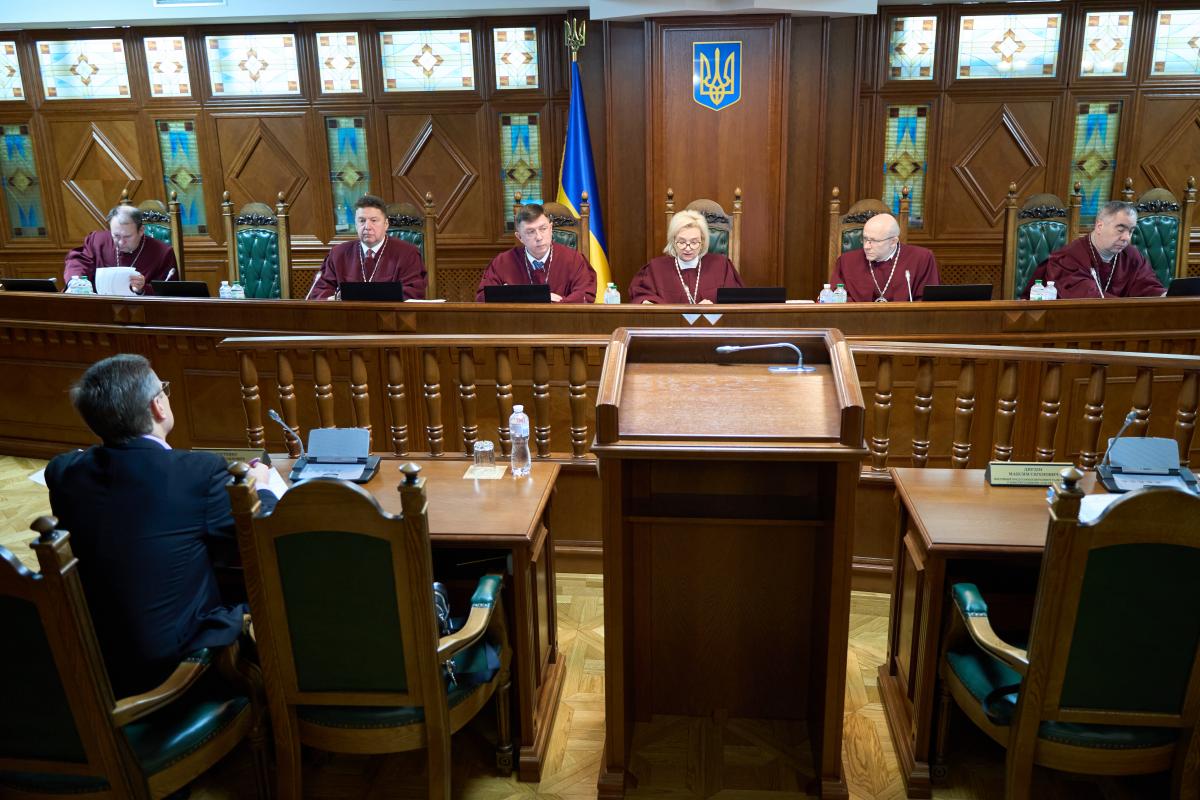28 November 2025
On 26 November 2025, the Second Senate, in the open part of its plenary session conducted in written proceedings, continued deliberation of the case upon the constitutional complaint submitted by Tetiana Samborska regarding the constitutionality of Articles 309, 428.2.2 of the Criminal Procedure Code of Ukraine (hereinafter, the “Code”).
During the plenary session, the Judge-Rapporteur in the case, Serhii Riznyk, presented the substance of the constitutional complaint and the applicant’s arguments.
The Judge-Rapporteur noted that Articles 309.1, 309.2 of the Code establish the list of rulings of an investigating judge that may be appealed during pre-trial investigation. According to Article 309.3 of the Code, “other rulings of an investigating judge shall not be subject to appeal, and objections against them may be submitted during the preparatory court proceedings”.
Under Article 428.2.2 of the Code, the court of cassation issues a ruling refusing to open cassation proceedings if “based on the cassation appeal, the judicial decisions attached to it and other documents, it is evident that there are no grounds for satisfying the appeal”.
According to the constitutional complaint, the Main Investigative Department of the State Bureau of Investigation conducted a pre-trial investigation in criminal proceedings in which Tetiana Samborska was suspected of committing a criminal offence under Article 367.2 of the Criminal Code of Ukraine. The senior investigator, referring to Article 290.10 of the Code, applied to the investigating judge with a petition to set a time limit for the defence to review the case materials. This ruling was appealed. The Kyiv Court of Appeal refused to open proceedings on the appeal, since the criminal procedural law does not provide for the possibility of appealing a ruling of an investigating judge setting a time limit for familiarisation with case materials issued under Article 290.10 of the Code.
The Supreme Court, guided by Article 309 and Article 428.2.2 of the Code, refused to open cassation proceedings on the cassation appeal, noting that the appellate court had reasonably refused to open proceedings because the appeal had been filed against a decision that is not subject to appeal.
In substantiating her claim that Article 309 of the Code does not comply with the Constitution of Ukraine, Tetiana Samborska states that the Code does not provide courts with the power to annul an unlawful ruling of an investigating judge as envisaged by Article 309.3 of the Code – neither at the stage of preparatory court proceedings nor at subsequent stages of criminal (judicial) proceedings. In her constitutional complaint, the applicant draws attention to Article 309.3 of the Code in the context of whether it provides effective legal remedies for protecting the rights and legitimate interests of suspects and accused persons. She emphasises that the rule established by the legislator in Article 309.3 of the Code is illusory, as it does not allow an unlawful ruling of an investigating judge to be challenged at all, including at the judicial stage of the proceedings.
In arguing that Article 428.2.2 of the Code is unconstitutional, the applicant asserts, in particular, that its content demonstrates “the existence of virtually unlimited procedural discretion for judges of the cassation court to resolve any case without opening cassation proceedings, that is, enabling abuses and violations of human rights”.
The Judge-Rapporteur also informed that, in order to ensure a full and objective consideration of the case, requests had been sent to state authorities, academic institutions, higher education institutions and scholars who are members of the Scientific Advisory Board of the Constitutional Court of Ukraine, asking them to provide their opinions on the issues raised in the constitutional constitutional complaint. The judges will be informed on the content of the answers during the in-camera part of the plenary session.
After examining the case materials, the Court proceeded to the in-camera part of the plenary session to adopt a decision.
The plenary session was attended by Maksym Dyrdin, the Permanent Representative of the Verkhovna Rada of Ukraine to the Constitutional Court of Ukraine, and Vadym Kostenko, an attorney acting on behalf of the subject of the constitutional complaint.
The public part of the plenary session is available on the Court's official website in the Section “Archive of video broadcasts of sessions”.



